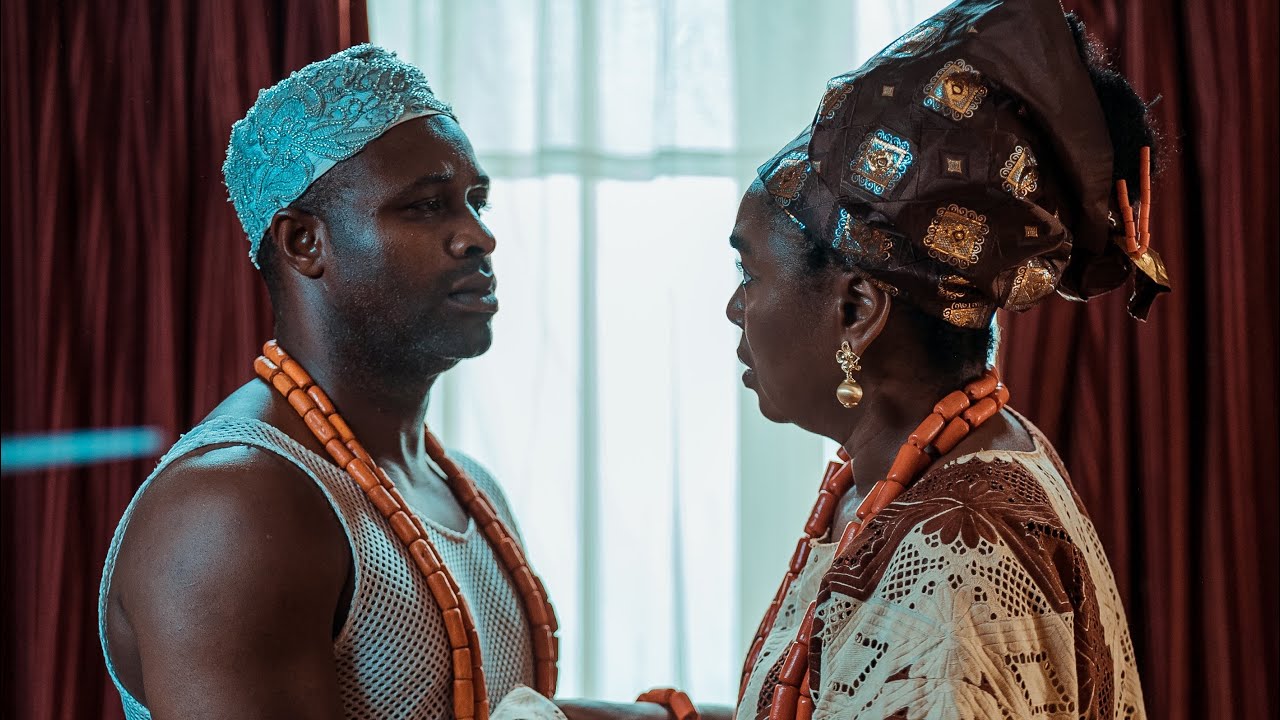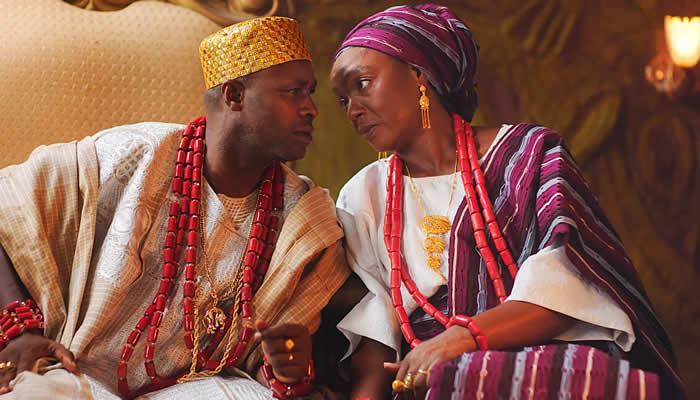As a film graduate who is always on the look out for good movies, “Seven Doors” is one that I couldn’t wait to watch. The thriller kept me in anticipation and after of watching the series, I was not disappointed, reminding me why Nigerian cinema is a storytelling powerhouse.
Seven Doors by Femi Adebayo, is a dive into the complexities of tradition, power, and personal sacrifice. Set in the late 1960s and early 1970s, the film delves into themes of tradition, duty, and personal sacrifice, offering a profound exploration of Nigerian heritage. As his directorial debut, Adebayo swings for the fences, and while he doesn’t always hit a home run, the effort is undeniably ambitious.
Plot Overview
The series introduces us to Adedunjoye, portrayed by Femi Adebayo, a humble family man whose life takes an unexpected turn when he is chosen to ascend the throne of Ilara Kingdom. Reluctant at first, Adedunjoye eventually accepts the mantle of kingship, only to find his reign plagued by a series of misfortunes. T
he kingdom’s turmoil is attributed to the unresolved sins of his forefathers, particularly a curse stemming from his ancestor’s sacrificial killing of seven wives to prolong his own life. To lift this curse, Adedunjoye is advised to “knock on seven doors,” a euphemism for taking seven wives. This directive sets the stage for a narrative rich in conflict, cultural introspection, and moral dilemmas.
Cultural and Historical Context
“Seven Doors” serves as a love letter to Nigerian culture, meticulously portraying the traditions, languages, and societal structures of the time. The series seamlessly blends Yoruba, English, and Igbo languages, reflecting Nigeria’s linguistic diversity and enhancing the authenticity of the narrative. The depiction of traditional rites, royal customs, and the intricate dynamics of polygamous households offers viewers an immersive experience into the historical and cultural milieu of the era.

Character Development and Performances
Femi Adebayo’s portrayal of King Adedunjoye is both nuanced and compelling. He captures the internal struggle of a man torn between personal convictions and the heavy burdens of kingship. Chioma Chukwuka delivers a standout performance as Amaka, Adedunjoye’s first wife, embodying the emotional turmoil of a woman grappling with her husband’s mandated polygamy. The supporting cast, including industry veterans like Adebayo Salami and Jide Kosoko, contribute depth and gravitas to the narrative, each bringing their characters to life with remarkable authenticity.
Themes and Symbolism
At its core, “Seven Doors” explores themes of duty versus desire, the inescapable weight of ancestral sins, and the complexities of leadership. The titular “seven doors” symbolize not only the literal directive given to the king but also represent the multifaceted challenges and moral quandaries he must navigate. The series delves into the tension between upholding tradition and pursuing personal happiness, highlighting the sacrifices inherent in positions of power.
Cinematography and Production Design

The visual aesthetics of “Seven Doors” are a testament to the filmmakers’ dedication to authenticity and artistic excellence. The series boasts meticulously designed sets that recreate the historical period with stunning accuracy. The use of natural landscapes, traditional architecture, and period-appropriate costumes immerses viewers in the world of Ilara Kingdom. The cinematography captures the grandeur of royal ceremonies and the intimacy of personal moments, creating a visual narrative that complements the storytelling.
Critical Reception
Since its release on Netflix on December 13, 2024, “Seven Doors” has garnered critical acclaim for its storytelling, cultural representation, and production quality. Critics have lauded the series as a thematic masterpiece that captivates from start to finish. The deliberate pacing allows for deep character development and a profound connection to the narrative. The series has been praised for its authentic portrayal of Nigerian culture and its exploration of complex moral and societal issues.
Review – Seven Doors
Seven Doors is a triumph of storytelling, weaving together a tightly constructed narrative with breathtaking visuals and stellar performances. The opening sequence is a masterclass in atmosphere, drawing viewers into the mystical world of Ilara.

The cinematography captures the kingdom’s beauty and eerie ambiance, while the special effects, particularly the transformation of statues into humans, showcase technical excellence. The attention to detail in costume and set design immerses viewers in the narrative, though the temporal setting may occasionally feel ambiguous.
One notable strength is the film’s ability to bridge cultural divides, subtly addressing the growing tribalism seen on Nigerian social media. This inclusivity enhances its universal appeal.
While the intricate plot might overwhelm those unfamiliar with Yoruba traditions, the film’s universal themes ensure broad relatability. The cast delivers standout performances, with Ademola and Gafar leading an ensemble that brings authenticity and passion to the story. The only issue I have with the movie is unnecessarily prolonged dialogue that it kept waiting for the plot to kick in.
Seven Doors is a cinematic masterpiece that blends cultural richness with universal themes. Femi Adebayo once again demonstrates his brilliance as a storyteller, crafting a visually stunning and emotionally resonant tale. This film is not just a successor to Jagun Jagun but a landmark in Nigerian filmmaking, affirming Adebayo’s legacy as a creative force in Nollywood.






































Discussion about this post